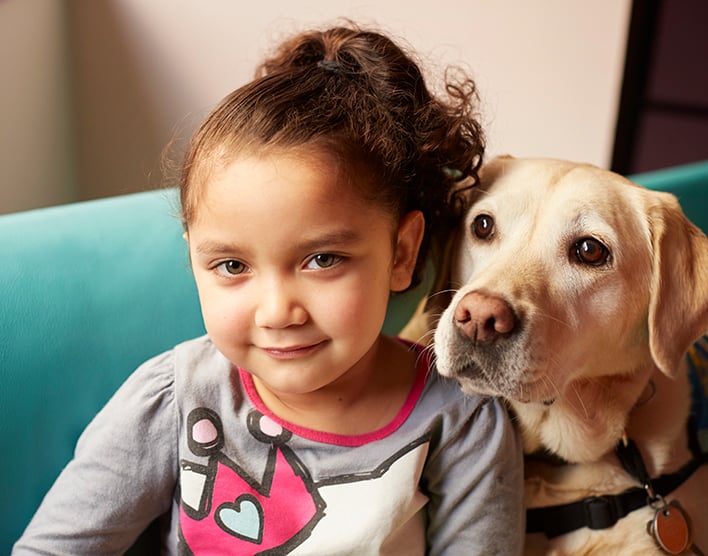- Can my child get hepatitis or HIV from clotting factor treatments?
- How will I know if there is a problem with my child's factor product?
- Can my child exercise and play sports?
- Should my child go to a special school?
- Who should know that my child has hemophilia?
Can my child get hepatitis or HIV from clotting factor treatments?
In the past, viruses like hepatitis A, B and C and HIV were passed from blood donors to people with hemophilia through factor treatments. Today, the risk of contracting these viruses through factor products is almost entirely eliminated by several advances, including screening of all blood donors for hepatitis and HIV; purification and treatment of all human blood products to kill viruses; and development of recombinant clotting factor products that have little or no human blood proteins.
In addition, it is recommended that all children with hemophilia receive immunizations for hepatitis A and B. There are currently no immunizations available to guard against HIV and hepatitis C.
How will I know if there is a problem with my child's factor product?
If there is a problem with a clotting factor product, the pharmaceutical company must remove it from distribution. On October 13, 1998, the Patient Notification System was launched to inform people when a factor product is withdrawn or recalled. The National Hemophilia Foundation urges everyone to register with the Patient Notification System so you can be notified directly of possible problems. Each person who registers with the Patient Notification System will select how he wishes to be notified — by telephone, express delivery letter, fax or email. You can register in the following ways:
- Call (888) 873-2838 or (888) UPDATE-U
- Submit information online using the Patient Notification System of the Plasma Protein Therapeutics Association
- Fax registration form to (800) 442-2906
- Mail registration form to National Notification Center, 20 N. Meridian St., Suite 300, Indianapolis, IN 46204
Can my child exercise and play sports?
Yes. Your child should get plenty of exercise. Regular exercise strengthens muscles and protects joints, which can help reduce spontaneous bleeding. Some recommended activities include swimming, bicycling, walking, jogging, tennis, golfing, dancing, fishing, sailing and bowling. Most experts recommend that children with hemophilia avoid contact sports such as football, hockey, boxing and wrestling.
You and your child can experiment to find activities that work best. Avoid activities that cause bleeding episodes. Staff at the Hemophilia and Thrombosis Center, especially the physical therapist, can suggest appropriate activities for your child. Talking to parents of other children with hemophilia also can be helpful.
For more information on safe recreational activities, see the National Hemophilia Foundation publication, "Hemophilia, Sports and Exercise." The foundation Web site has information about this publication and others.
Summer camps for children with bleeding disorders help kids learn to cope. Staff members of the Pediatric Hemophilia and Thrombosis Center participate in a summer camp in Northern California for kids and families affected by hemophilia, sponsored by the Hemophilia Foundation of Northern California. For more information, contact the UCSF Hemophilia Treatment Center at (415) 353-2813.
Should my child go to a special school?
No. Barring learning difficulties, your child belongs in a regular classroom. Meet with the staff at your child's school before classes begin to explain your child's condition. Some teachers will be well informed, while others may be learning about hemophilia for the first time. Staff members from the Hemophilia Treatment Center usually are available to talk to your child's teachers by phone or to visit your child's school to discuss hemophilia and any special needs that your child may have.
Your child should be able to participate in all class activities, including recess and physical education. However, if your child experiences frequent bleeding episodes after physical education class, your doctor or physical therapist can work with the school to arrange a modified exercise program. They may suggest that your child start prophylactic factor treatment to protect him from bleeding episodes while he is in school.
Make sure that the school knows how to contact you, your doctor or your Hemophilia Treatment Center in an emergency. Contact the National Hemophilia Foundation for the pamphlet, "The Child with a Bleeding Disorder: First Aid for School Personnel," which provides guidelines for bleeding episodes that may occur at school.
Who should know that my child has hemophilia?
Everyone who takes care of your child should know about his or her hemophilia. This includes babysitters, teachers, coaches, daycare workers, relatives and parents of playmates. They need to know what hemophilia is and what they should do if a bleed occurs. They should know how to reach you, your child's doctor or the Pediatric Hemophilia and Thrombosis Center in an emergency.
Doctors and other health professionals who provide medical or dental care also should know that your child has hemophilia. It is recommended that your child wear a medical alert bracelet or necklace that identifies his or her condition in case of an emergency. To enroll your child in the MedicAlert system and order an emblem bracelet or necklace for older children, call MedicAlert at (800) 432-5378.
As you talk about your child's hemophilia, some people may be afraid. They may think that they can catch hemophilia from your child or worry that your child could bleed to death in minutes because of a paper cut. You and your child can help educate people about hemophilia. Let your child know that hemophilia is part of who she or he is and that it is not something to be ashamed of. Consider getting involved in the hemophilia community to meet other families who successfully live with hemophilia.






























